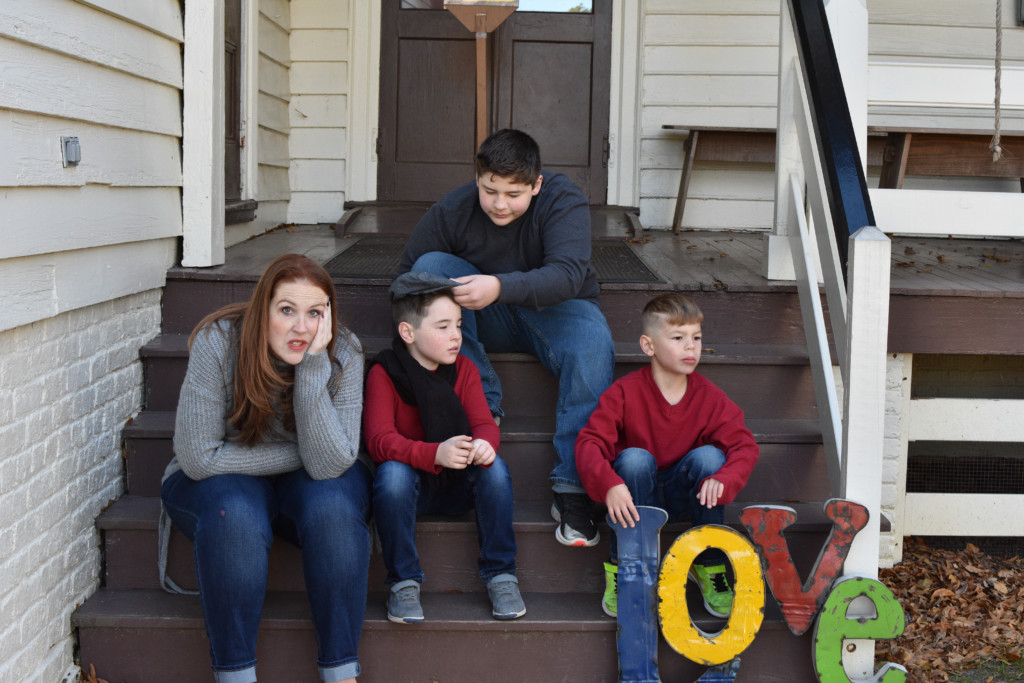
Halloween is over, but scary movies, TV shows, books, and activities are year-round. Julie Best Wilcox, LCSW at Thriveworks Counseling and Life Coaching in Chesterfield, shares important tips that can help you navigate scary things with your children.
How do we help our children (and sometimes ourselves) prepare for the scary shows or events and especially the potential fallout that can come from them?
Here are some steps that you as parents can do to help navigate the scary things, the fears, and nightmares that may come.
1. Don’t expose children that aren’t ready
This may sound simple, but it can be complex. We have to think about not only age but developmental stage. For example, not all 14 year-olds can handle going to a haunted house. Not all 5-year-olds can handle watching Snow White. (Do you remember how scary the queen is?!)
Does your child have an active imagination? Although this is a great trait, it can often lead to their minds “running away” with more negative and scary things as well. Is your child prone to scary dreams? Do they scare easily or shy away from masks or scary costumes? These are all indicators that they may not be ready. Their brains are still developing into their late 20’s. As a result, they often do not have the cognitive abilities to separate fact from fiction in their developing worlds.
2. Talk to your children
Find out why they want to watch something. Peer pressure is a powerful thing. Your child doesn’t want to feel left out. However, having them sleep with you and be terrified aren’t good either. Come up with compromises:
- Read the book first.
- Rent the movie and allow them to watch parts, but not all.
- Watch it before them so you can determine if you want them to see it.
- Watch it with them and talk about it throughout.
- Do not watch at night or in the dark.
- Mute the scary music that is always in the background to heighten your fear.
- Process what they’ve seen. Sometimes they’ll need to talk about it multiple times. Talks should focus on support and helping them feel safe.
Above all, remember: you are the parent and you can set limits as to what they are exposed to.
3. Do not minimize or make fun of (or allow siblings to)
Check in with your children throughout scary movies/scenes. It should always be OK to stop a movie, discuss it, or even turn it off. Do not use (or allow siblings to use) terms like “cry baby” or other terms or comments that could make someone feel bad about being scared. Share what you’re scared about so they know it’s OK to have fears.
Just because you love scary movies doesn’t mean your children will. Different things scare different people. Some can stand the blood and guts, but can’t handle masks. Others are fearful of clowns. Fears are not always rational and should never be made fun of or ignored. Empathy is key.
4. Use books
With younger children, use books such as The Berenstain Bears, In the Dark, or Nicola Winstanley’s, A Bedtime Yarn. These and many other books can help children talk about fears and normalize them.
With older children, have them read scary books before watching the movies. It can often help them to know what is coming and be less fearful of the movies. Again, read these books with your children, as even books can create fears.
5. Create an environment that feels safe
Children’s fears often come from fantasy, so use it to help them overcome fears as well.
- Create a “magic wand” to protect them from monsters.
- Have a magic blanket that they sleep with.
- Get night lights.
- Let children sleep with lamps on, doors open, curtains closed, or however they feel comfortable.
- Some children may even want to rearrange their room to feel safer.
- Ensure you have a safe bedtime routine that helps them prepare for a good night’s sleep.
- Use spirituality, such as prayers.
- Create dream catchers to hang above the bed.
- Provide them with a dream journal to write or draw in when they have bad dreams. These things can then be discussed or ripped up, often taking away the power of the fear/dream.
Keep in mind that children of all ages see things very differently.
Some are just going to be prone to be more scared. Many adults cannot stomach scary movies or events, so why should we expect our children to? Let’s make sure we’re setting our children up for success by not exposing them to things they’re not ready to handle. However, if they are exposed, meet them with empathy, support, and safety.









